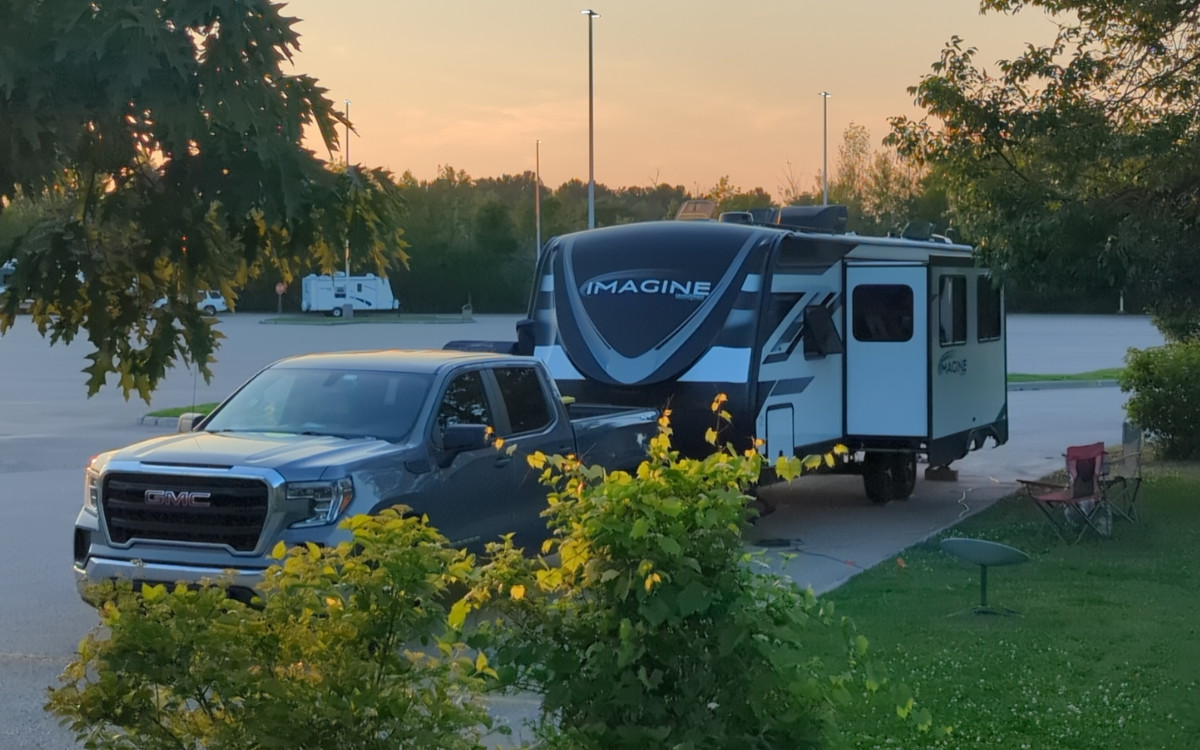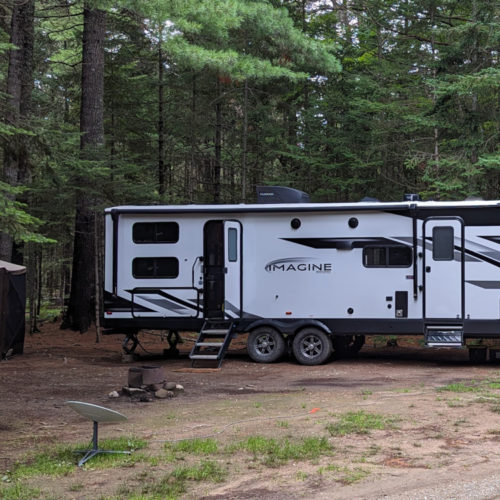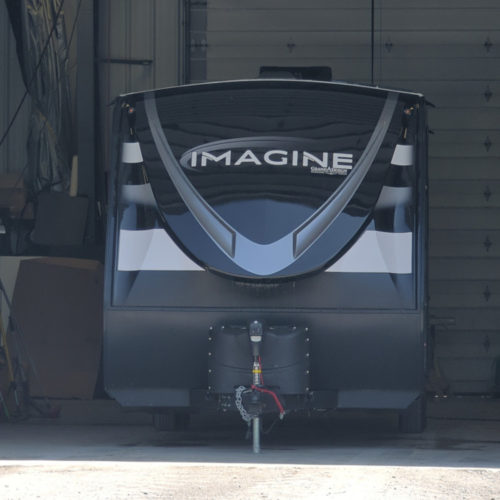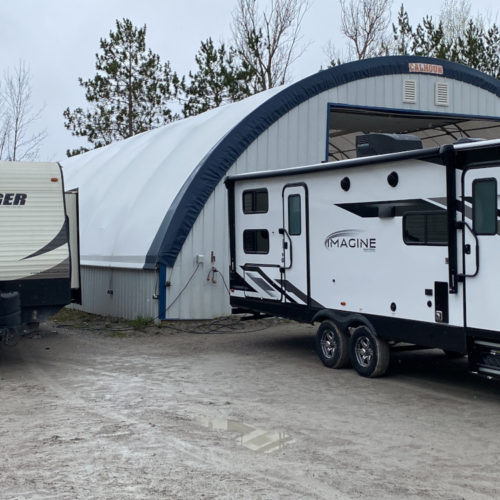This is a question we thought about often when planning our move to an RV. Would this move be feasible, or result in a financial disaster?
Cheaper is a relative term. Cheaper than what? I can’t give you an answer to your specific situation because I don’t know your situation. There are too many variables. What I can do is walk you through a couple of situations similar to ours. Hopefully, that will give you the insight and data to figure out if it’s cheaper to live in an RV full-time given your unique situation.
We’ll look at three scenarios for this example. The first is based on renting a house in a small city. The second is living in an RV on land you own. The third is living in an RV in a full-service park. I’m going to make a few assumptions for this exercise:
The rental house in this example includes all utilities, except electricity. This is accurate pricing based on the house we lived in before our move to full-time RV living. This exercise assumes you own the land outright. If you financed, then add your monthly payment on the ‘Rent’ line under ‘Own Land’
The utility costs for ‘Own Land’ are based on our current situation. We don’t have a septic system or a well. We pay a company to pump out our tanks once per week. Our local fire department fills our bulk water storage once a month for a small fee. These costs could be eliminated with an investment in a well and septic system.

The cost of RV parks can vary dramatically. We settled on $1,000 as our max monthly budget for times when we are traveling. You can find a good park with a monthly rate within this budget almost anywhere in North America. We’re assuming the RV park fee includes electricity. Some do not.
The RV payment is a rough estimate for a $50,000 RV financed at a prime rate with a responsible 20% down payment.
Here’s the sample data we’ll use for this exercise:
| Renting | Own Land | RV Park | |
| Rent | $1450 | $0 | $1000 |
| RV Payment | $0 | $400 | $400 |
| Electric | $200 | $100 | $0 |
| Sewer | $0 | $240 | $0 |
| Water | $0 | $100 | $0 |
| Maintenance | $0 | $100 | $100 |
| TOTAL | $1650 | $940 | $1500 |
A quick look at our data shows there isn’t much difference in housing costs between a rental and an RV in a full-service park. It’s roughly a 10% difference based on our sample numbers, but that number may be different in your situation.
Our numbers are also biased. Our plan was to be able to pay for our RV and a monthly RV park fee for less than we had been paying each month in rent. That’s a big part of the reason we settled on a $1,000 monthly budget for park fees.
If we assume a range of $700 to $1300, then our average of $1000 per month is reasonable, but it’s a $600 spread from low to high.
This number can vary significantly. The first park we stayed in charged $700 per month for a full-service hookup. There was a great park outside Toronto where we stayed with a monthly rate of $1050 plus electricity. The park where we plan to spend time next month is around $800.
Parks we’ve looked at in Flordia for this winter have varied from $650 to $1300. If we assume a range of $700 to $1300, then our average of $1000 per month is reasonable, but it’s a $600 spread from low to high. That will make a big impact on determining if it’s cheaper for you to live full-time in an RV.

Living in an RV on land you own is a different story. It’s considerably more affordable, assuming you own the land outright, or you have a low monthly payment. There are a few other expenses to take into consideration. You’ll need a water supply and a method for disposing of waste.
We pay a service fee for those, but if you make the investment into a well and septic system, then the ongoing cost to live full-time in an RV on your own land is much cheaper. You’d need to pay for your RV, electricity, and maintenance. In almost every case, that would be cheaper than renting.
Our plan combines these two options. We spend six months of the year on our land, benefitting from the lower costs. Then we spend six months traveling, mostly down south in the winter, and paying for spots in RV parks. Sometimes we pay monthly to get the lowest cost per night, but only if we want to be in that area for many weeks.
When traveling to different places, we combine boondocking with single-night stays to keep our average nightly rate below $30. This keeps us on budget, and we really enjoy boondocking.
Don’t Forget to Add in the Cost of Gas
One consideration we haven’t discussed yet is fuel. Our RV doesn’t move very well on its own. It needs to be hooked up to our tow vehicle. An RV parked on your land year-round won’t incur much in the way of fuel costs for your tow vehicle, but moving between RV parks will. We budget $0.50 per kilometer for “moving expenses”.
Usually when traveling, we’ll plan on several weeks to reach a distant destination like Orlando.
If we want to head down to Orlando for the winter, we’re looking at a 3,000-kilometer trip. At fifty cents per kilometer, that’s a $1,500 expense. That’s a big cost that we need to budget. Usually, when traveling, we’ll plan on several weeks to reach a distant destination like Orlando. That allows us to move slowly and offset the added fuel cost by boondocking and saving on park fees. That math doesn’t quite come out even, but it helps. Also, did I mention we enjoy boondocking?
Is Full-time RV Living Cheaper for You?
Each one of us is in a unique situation with unique needs, so there’s no way I can definitely answer this question for you. My goal, which I hope I have accomplished, is to lay out some of the issues that you’ll need to consider when you’re trying to figure out if it is cheaper to live in an RV full-time.
Personally, we have decided it’s not cheaper than the house we were renting, but saving money was never our goal. We just wanted to travel and see what’s out there. We’re willing to pay a little extra for that experience. As a side note, after we moved out the landlord jacked up the rent to $1,700 for the next tenant, so maybe our new lifestyle is cheaper.
If your plan is to move into an RV to save money, then it can be done. You’ll have to make different decisions than we did, but it wouldn’t be difficult or uncomfortable to save hundreds of dollars per month on your living arrangement, especially if you’re in a warmer climate and have access to affordable land.




